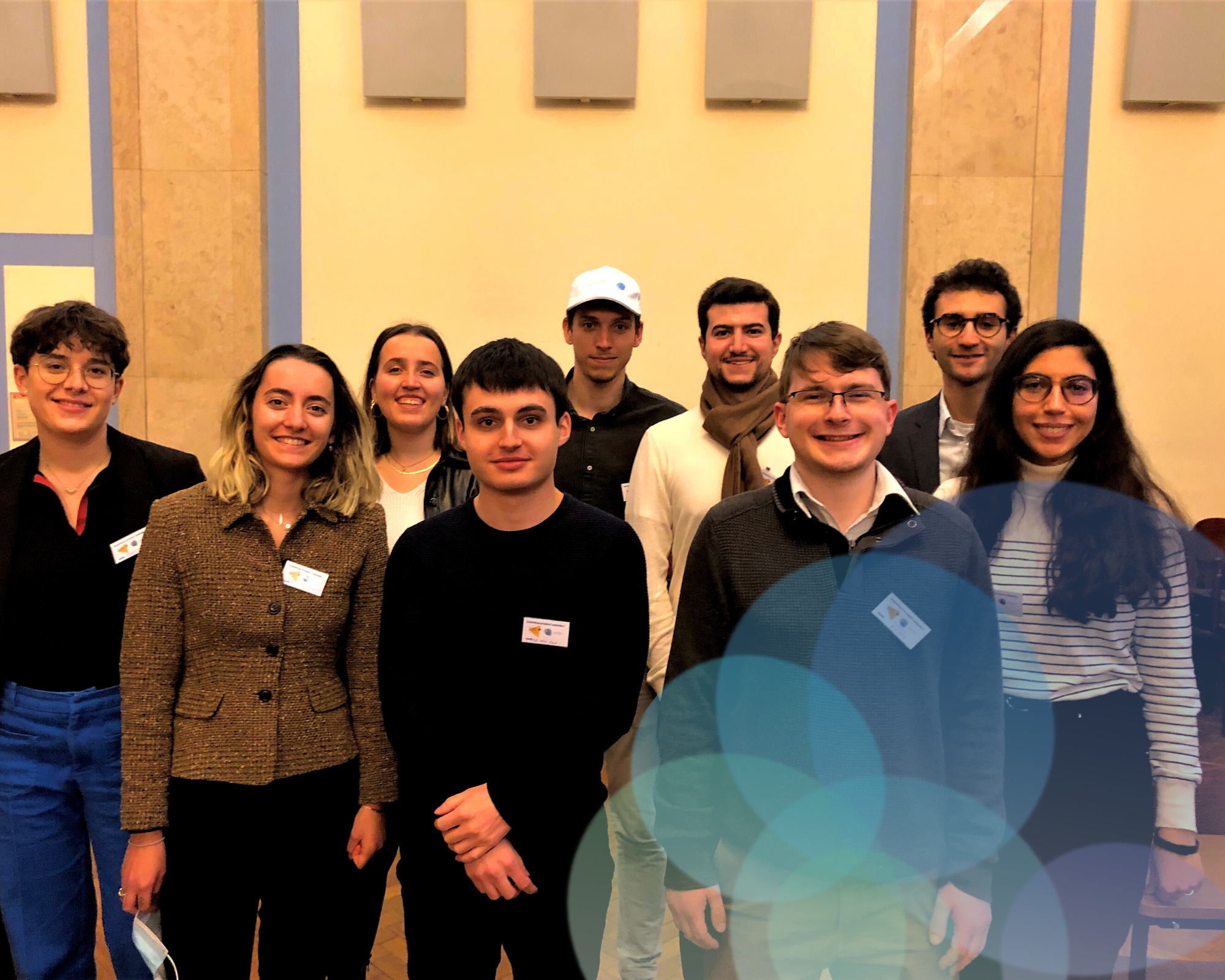
On the photo, front row from left to right : Eléonore, Maël, Guillaume. 2nd row, from left to right : Claire, Anna, Nils, Fernando, Islam, Fatma.
8 March 2022
Unite! students help define the future of Europe
Ten Unite! students participated in the first session of the European Student Assembly, debating with other European students and formulating recommendations for the European Parliament. Policy recommendations will be published soon.
The inaugural session of the European Student Assembly was a unique opportunity for students from across Europe to address some of the complex challenges that the EU faces today. During the 3rd and 4th of March, 250 students from all over Europe, from 38 European universities alliances voiced their positions on the future of the EU and debated among their respective student bodies.
For Roxane Galindo, a Grenoble INP – UGA student and Unite! International Communication Intern, who attended the event to report about the participation of our Unite! student representatives “it was really inspiring to see so many students excited, not only to visit a place such as the European Parliament, but also to finally be able to meet each other physically. As I was walking around to find Unite! students, I noticed that students were not forming groups with people that spoke the same language, but were open to meet other students from other alliances and countries.”
For Roxane Galindo, a Grenoble INP – UGA student and Unite! International Communication Intern, who attended the event to report about the participation of our Unite! student representatives “it was really inspiring to see so many students excited, not only to visit a place such as the European Parliament, but also to finally be able to meet each other physically. As I was walking around to find Unite! students, I noticed that students were not forming groups with people that spoke the same language, but were open to meet other students from other alliances and countries.”
The students' debate was preceded by a series of keynote speeches from prestigious guests representing European institutions and round-tables. Islam Shalik, a PhD student at UGA and one of our Unite! students representatives moderated the round-table: ‘Rethinking the European democracy through student diplomacy’, with Paul Jacqué, Honorary General Director at the Council of the EU, Antonio Argenziano, President of the Young European Federalists, Jakub Grodecki, Vice-president of the European Student Union, Christophe Grudler, Member of the European Parliament.
Therefore, the Conference on the Future of Europe should be the opportunity to reshape Europe and to take actions now, because the future starts now. In this perspective, it is of utmost importance that students and the youth in general have a voice in what will be the future of Europe.The four guests all agreed that Europe needs to be more united than ever to tackle all the challenges and crises it is facing, especially now with what is happening in Ukraine.
Afterwards, student representatives were divided in 10 panels to discuss their position within each of the thematic sub-groups related to current European challenges: common agricultural policy, cybersecurity, education, healthcare, digitalisation, etc. The recommendations of each subgroup were then submitted to the vote at the plenary assembly, resulting in a common position paper to be shared with European decision makers in the frame of the Conference on the Future of Europe. The policy recommendations will be published soon both at the European Universities Community and Conference on the Future of Europe websites.
Our student representatives were divided in the following panels:
Mael Le Men and Guillaume Ricard from UGA participated in panel 1 – How can the EU reunite its people around its common values?
Fernando Amador Pla from UPC and Eléonore Miressou-Got from UGA participated in panel 3 – Learning from the pandemic – Do we need a European Health Union?
Nils Maynard from UGA participated in panel 5 - Sustainable development or degrowth – What economic model can the EU adopt for tomorrow’s world and how can it be durably settled?
Fatma Souissi TU Darmstadt participated in panel 9 – Climate refugees as a new challenge for Europe – How should the European Union prepare to deal with refugee crises to come?
Anna Valero Casas-Aljama from UPC and Louis Rase from UGA participated in Panel 10 - How to build future-oriented, digitised and yet inclusive higher education systems across the European Union.
